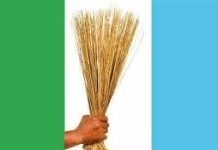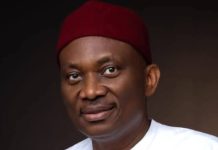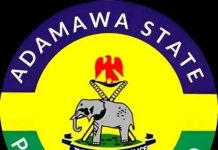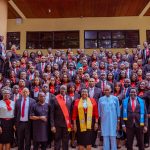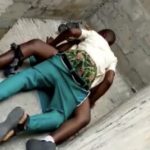As Labour Party (LP) and Peoples’ Democratic Party (PDP) legal teams present evidence of forged documents and noncompliance by the Independent National Electoral Commission (INEC) to the Presidential Election Petition Tribunal, sitting president Bola Ahmed Tinubu and his Vice, Shettima, may be ousted out of office.
In a significant turn of events, the legal teams of two Nigerian opposition parties, the Labour Party (LP) and the Peoples Democratic Party (PDP), have presented compelling evidence against the candidacy of Bola Ahmed Tinubu in the recent presidential election.
The teams have accused Tinubu of submitting a forged certificate to the Independent National Electoral Commission (INEC) and lying under oath about dual citizenship in his INEC form.
The implications of these actions Tinubu’s disqualification is a matter of ‘when and not if’, as per the Nigerian constitution.
Moreover, the LP legal team has proven that INEC engaged in substantial noncompliance during the election process.
They have proven that there was no glitch on election day and that the IReV upload for the presidential election was intentionally turned off to sabotage the process.
Furthermore, the LP proved that INEC declared Tinubu the winner without ensuring that the physical results matched the electronic data.
Adding to the gravity of the situation, it has been concluded that Tinubu faced a fine from a competent court in the United States for money laundering related to narcotics trafficking.
Such criminal act prove a serious challenge about his eligibility to hold the highest office in Nigeria.
Nigerians are demanding that the judiciary must ensure transparency and credibility in the electoral process, especially when it comes to electing the leader of the most populous black nation in the world.
They emphasize that the citizens’ faith in the country’s institutions is at stake, and the judiciary’s role as the last bastion of hope and justice is paramount.
It is worth noting that over N300 billion was allocated to INEC for the election, but concerns arise as they seemingly failed to investigate the candidates they cleared for the race.
Allowing someone with a proven court case for narcotics trafficking to run for the presidency is seen by many as an outrageous oversight.
Calls for justice are growing louder, with demands for the outright disqualification of Tinubu and a ban on him contesting any further elections in the country.
Critics argue that anything less would be a miscarriage of justice, undermining the nation’s laws and fostering a lack of accountability for corrupt politicians.
As the nation reflects on these revelations, citizens are reminded that the strength of a country lies in the integrity of its institutions.
The need to rebuild and reinforce these institutions becomes more apparent than ever.
The issue has sparked widespread debate, with citizens expressing their opinions across various platforms.
Some individuals have also noted their concerns regarding the prominence of ethnic slurs in political discourse, urging for more constructive and respectful conversations in the public sphere.
The judiciary now faces the crucial responsibility of addressing these allegations and ensuring that justice prevails in this highly contested matter.
As the eyes of the nation remain focused on the unfolding developments, the fate of Tinubu’s candidacy and the broader implications for Nigerian politics hang in the balance.


